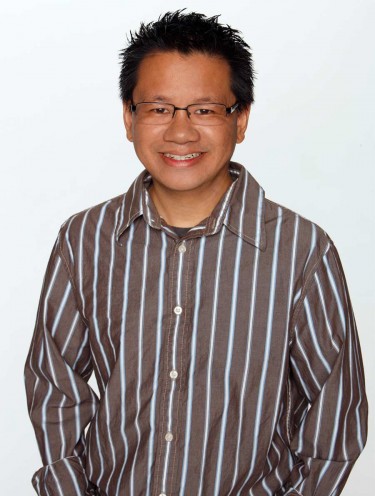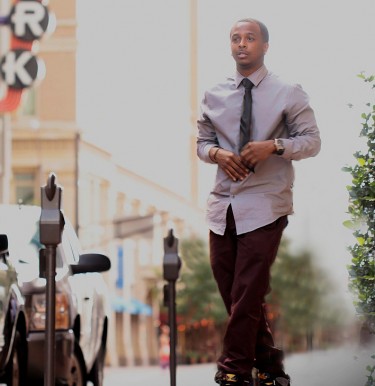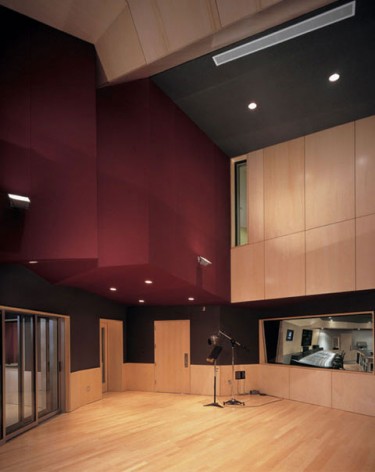Like so many professionals in broadcasting today, Radio Connection mentor Brian Huen became passionate about radio by listening to radio. Over the years, he’s worked in a number of roles in radio (including a stint at Radio Disney), eventually landing at Westwood One in Denver, CO, where he is now the Executive Producer for The Lia Show, a nationally syndicated country radio show. In the interview below, Brian provides some excellent insights on the state of radio today, as well as offering some great common-sense advice for students looking to break into the business.
* * * * *

Radio Connection mentor Brian Huen
Ever since I was a kid, I was always just fascinated by sound and music. I wanted to be a sound designer for cartoons. I remember just watching old Bugs Bunny or old Scooby-Doo cartoons, and hearing all the goofy sound effects and the background music, and it was just like, “Wow. That’s really cool.” …Then, when I was in school I started studying music. And all my friends, they were listening to all different kinds of rock music like Led Zeppelin and Pink Floyd and Boston and Aerosmith, so I just gravitated towards that. Then eventually I was traveling. I was in a competitive marching band, hence the music component. I played the saxophone. I was also a drum major, which is the guy that goes up and conducts the band…But while we were traveling—I’m originally from the San Francisco Bay Area—That’s where I would listen to radio and watch TV there. Whenever we would travel to Los Angeles or Wyoming or Seattle, my radio went with me. And it was really cool to hear how similar and yet how different radio was in each particular city. It was really cool to hear the rock and pop music of that time and then yet at the same time also just notice the stuff in between the music. There were the DJs and the personalities and the jingles that all went with it, and the packaging is what I call it. That’s how I got bit by the radio bug.
So then I would start calling radio stations and ask the radio DJs on the air. They were so patient with me, and they would answer all my questions about radio. “Okay, well, why does this song play? And what’s this thing, this little song between the songs that you guys are playing?” “Oh, that’s what’s known as a jingle.” “Why do you guys do all this?” And the radio DJs were very, very patient with me and would answer all my questions…In some ways, I think I got my training –I call it on the street training—by calling up radio DJs and asking them all the information.
RRFC: You mentioned the DJs and how patient they were with you. Do you look to any of them as a mentor, and how did they help you?
Brian: For me, personally, I never just had one mentor. I had a lot of mentors, because all the various people that I talked to, they all were all a part of my journey and part of my story. In a lot of ways, they believed more in me than I did in myself… At that time, I had low self-esteem issues and wasn’t confident in myself, but my mentors really believed in me. So I really didn’t necessarily have just one mentor. In a lot of ways they all opened the opportunity for me and helped me get my radio mentorships and all that. And they even helped me get my first jobs in radio…
I firmly believe that it’s not just what you know, but it’s also who you know. It’s a thing called networking. But it’s not just networking because you want something. I’m a firm believer that you need to develop genuine relationships with people. So it’s not, “What can you do for me?” But it’s, “How can I help you, just as a human being and as a person?”
RRFC: Can you describe your current role in radio broadcasting?
Brian: I serve as an Executive Producer. The show that I produce for is
The Lia Show, a nationwide country music show, a contemporary country music show. We are on over a hundred radio stations, Houston being our largest station. Lia, she’s been the host of her show for like 15, 17 years, around there. She’s in Seattle, and then I’m back here in Denver with my team, and we work with her every day, and we put the show together…



 When he discovered that the Recording Connection could get him into a real recording studio for an apprenticeship, he jumped at the chance. Before he knew it, he was on-the-job at Luminous Sound in Dallas, TX, learning as an apprentice from two-time Grammy-winning producer/engineer Tre Nagella (Lady Gaga, J. Cole and others). The two hit it off pretty quickly, and Dez wasted no time in picking Tre’s brain to learn all he could.
“He is super humble, man, and he’s a great teacher,” says Dez of his mentor. “When I’m there I try to ask as many questions as much as possible. I actually try to bug him. As far as the stuff that we go over, I’ll go back home and I’ll try to put it to use. When we’re there at the studio, if he’s doing something, I may be in the other room doing something, but when it’s time to go over the lessons, we really get deep into it.
“When I was watching the introduction to the school,” he continues, “one thing stood out to me: ‘Make sure that you bug your mentor.’ And I started laughing. I was like, ‘That’s totally me.’ I’m asking all the questions. I’m writing down everything I can. That relationship, man, you don’t get that one-on-one relationship with most of your professors.”
When he discovered that the Recording Connection could get him into a real recording studio for an apprenticeship, he jumped at the chance. Before he knew it, he was on-the-job at Luminous Sound in Dallas, TX, learning as an apprentice from two-time Grammy-winning producer/engineer Tre Nagella (Lady Gaga, J. Cole and others). The two hit it off pretty quickly, and Dez wasted no time in picking Tre’s brain to learn all he could.
“He is super humble, man, and he’s a great teacher,” says Dez of his mentor. “When I’m there I try to ask as many questions as much as possible. I actually try to bug him. As far as the stuff that we go over, I’ll go back home and I’ll try to put it to use. When we’re there at the studio, if he’s doing something, I may be in the other room doing something, but when it’s time to go over the lessons, we really get deep into it.
“When I was watching the introduction to the school,” he continues, “one thing stood out to me: ‘Make sure that you bug your mentor.’ And I started laughing. I was like, ‘That’s totally me.’ I’m asking all the questions. I’m writing down everything I can. That relationship, man, you don’t get that one-on-one relationship with most of your professors.”








